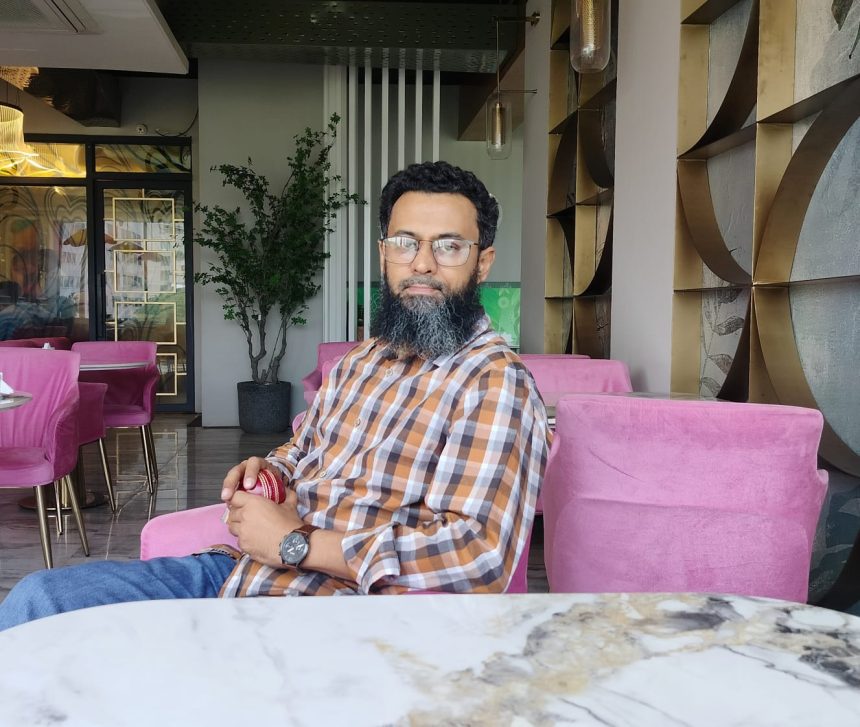You might remember fragments of Bangladesh’s debut Test match—Aminul Islam Bulbul’s century, captain Naimur Rahman Durjoy’s six wickets, Habibul Bashar’s 75-run knock, or the dramatic second-innings collapse that led to defeat. But if asked whether you’ve preserved any physical memento from that historic match—like a match ticket, a player’s tie, or the match ball—most would probably say no. That’s because only a rare few have such treasures in their possession.
One of those rare individuals is Zunaid Paiker. He still carefully preserves memorabilia such as a ticket from Bangladesh’s debut Test and a player’s tie. Junaid, the CEO of a private health organization, began collecting cricket memorabilia in 2000 purely out of passion. His personal archive includes everything from Sir Don Bradman’s autograph to signed caps, jerseys, bats, and balls—and even the ticket from Shakib Al Hasan’s most recent Test match.
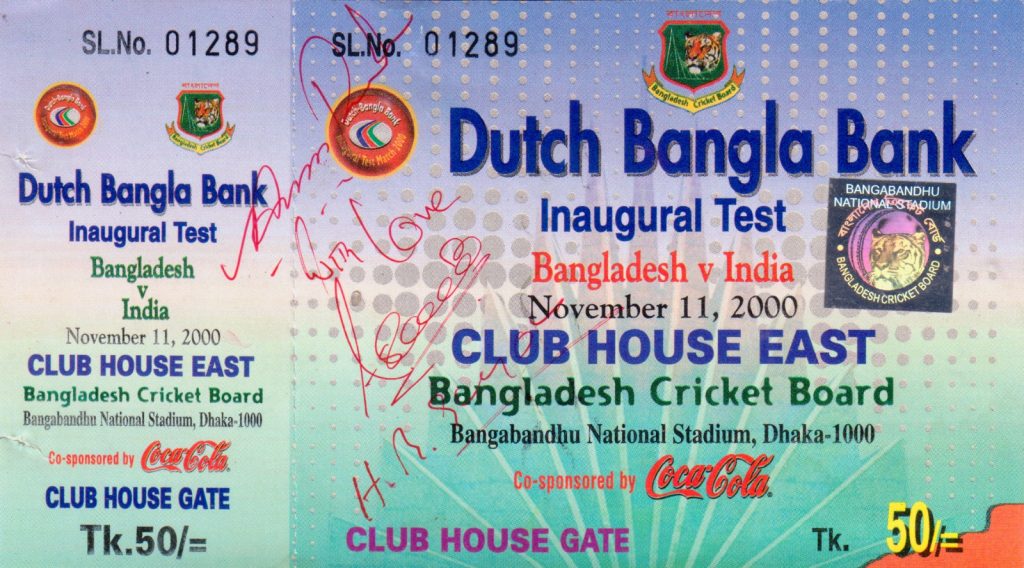
While rare records, statistics, and highlights of the game are well-documented, finding a ticket from a match ten years ago isn’t easy. That’s precisely the kind of work Zunaid has been doing with dedication for over two decades—ever since he served as a ball boy during the 1998 ICC KnockOut Trophy held in Bangladesh.
To mark 25 years of Bangladesh’s journey in Test cricket, Times of Bangladesh sat down with this passionate collector to talk about his journey, his dreams, and how times have changed. Here are highlights from that conversation:
Times of Bangladesh: How did your memorabilia collection start?
Zunaid Paiker: In the beginning, I collected items from matches I personally attended. I got to know people who regularly went to matches or were journalists—they helped me get more items. My journey spans 25–26 years. In the first ten years, most of my collection came from attending matches. After I hosted two exhibitions, many people came to visit, and I built new connections—especially with journalists, who began bringing me match tickets and various memorabilia. That’s how I ended up collecting many rare tickets. Honestly, journalists helped me the most in this journey.
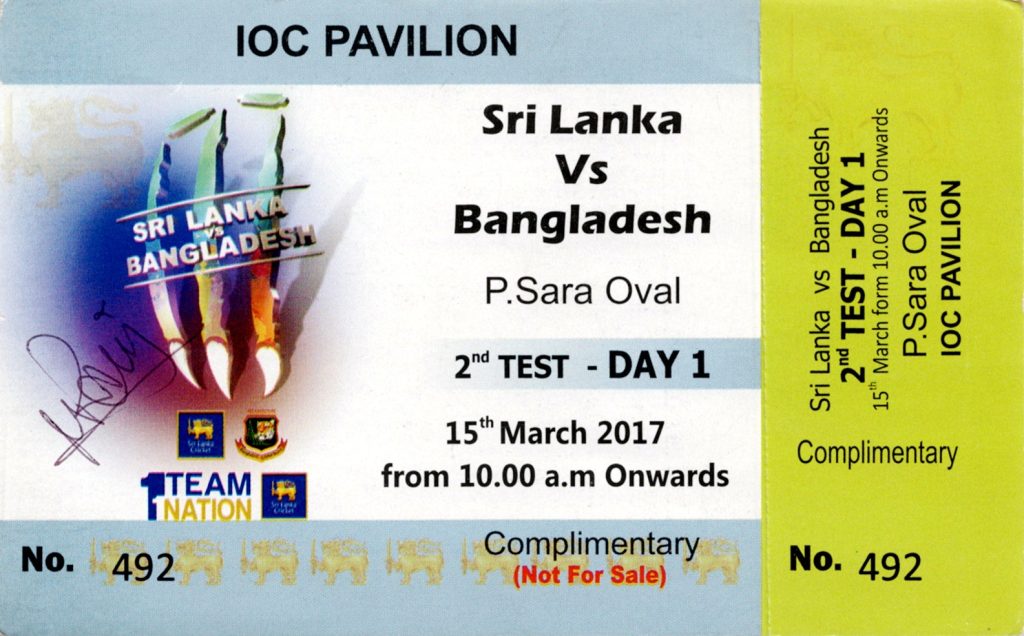
Times of Bangladesh: What were the first and most recent items in your collection?
Zunaid Paiker: The first was the ticket from Bangladesh’s debut Test. The most recent was from Shakib Al Hasan’s last Test in Kanpur. But lately, I’ve been facing a challenge—printed tickets are disappearing. For example, the recent Galle Test had free entry. Many events now use e-tickets. I couldn’t even get a physical ticket from the last World Cup because of the shift to digital.
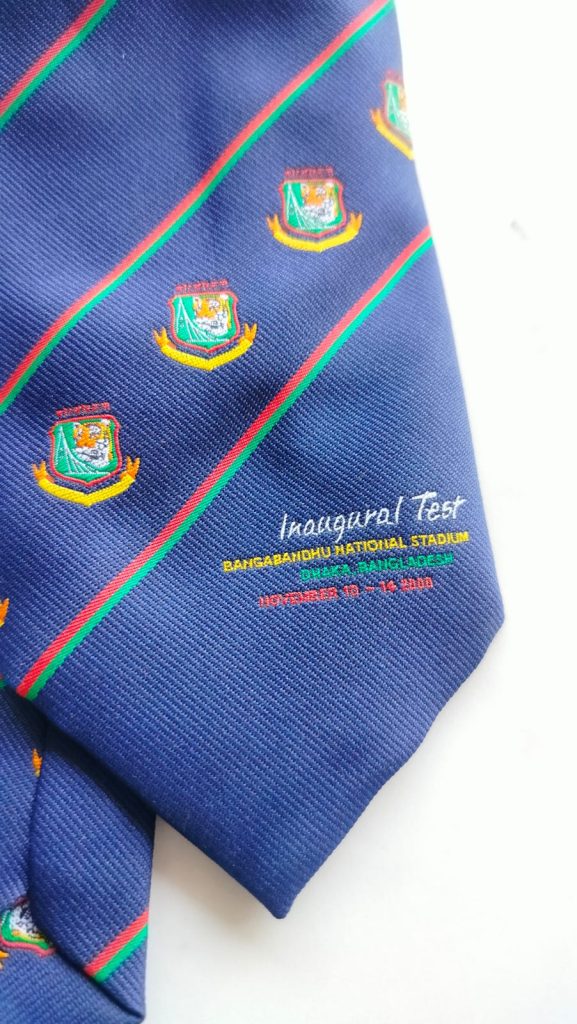
Times of Bangladesh: What do you consider the most valuable Test cricket memorabilia in your collection?
Zunaid Paiker: That debut Test ticket is my most valuable possession. It still looks brand new. It carries the autographs of Aminul Islam Bulbul, captain Durjoy, and Habibul Bashar. That ticket will always hold a special place in my collection.
Times of Bangladesh: What’s the rarest Test-related item you have?
Zunaid Paiker : I have the tie from Bangladesh’s first Test. The match was in 2000, and I acquired the tie in 2002. So I’ve had it for 23 years. It’s extremely valuable to me. Besides that, I also have the blazer from Bangladesh’s 100th Test.
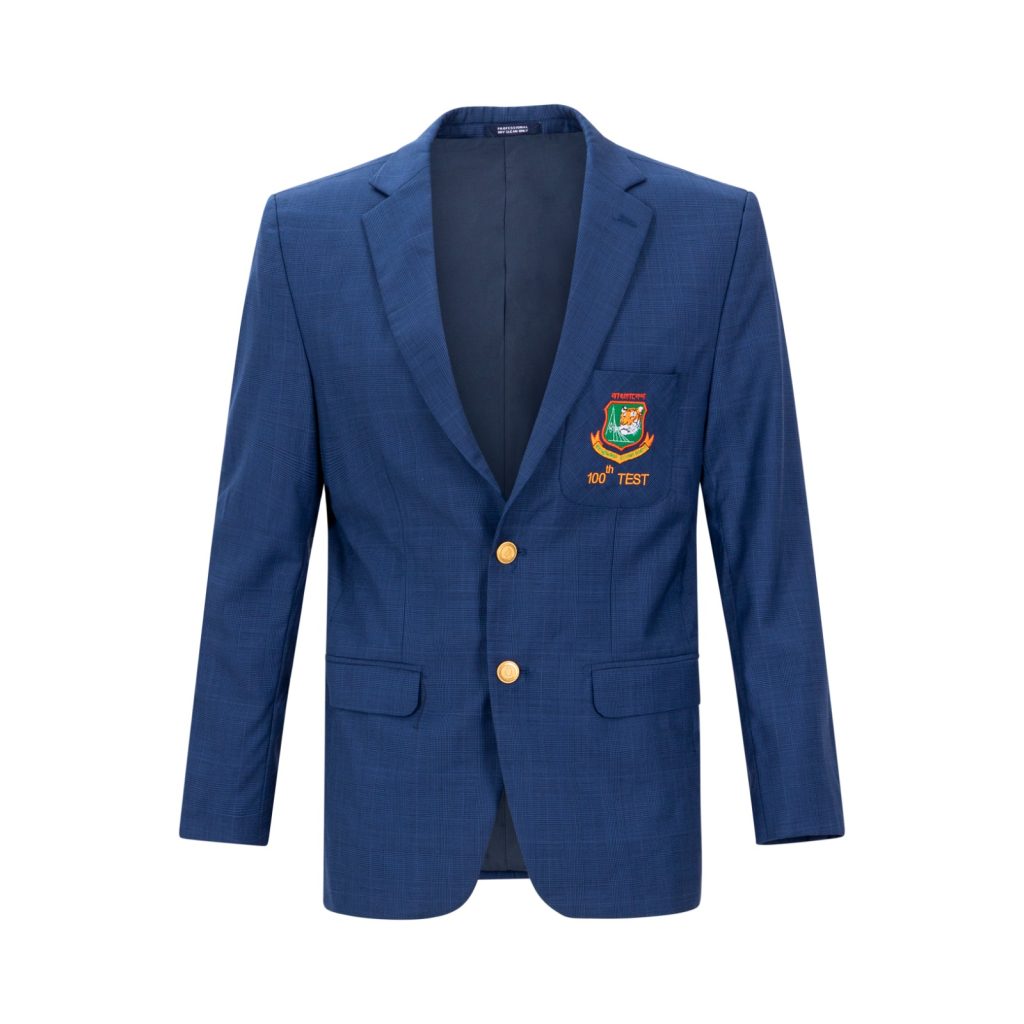
Times of Bangladesh: How did you get that tie?
Zunaid Paiker: I got it from a collector in England. We connected and exchanged items, and that’s how the tie came to me.
Times of Bangladesh: Any interesting experiences while collecting memorabilia?
Zunaid Paiker: In 2008, Neil McKenzie and Graeme Smith set a world record 415-run opening partnership against Bangladesh in Chattogram. I was there on a family trip. I had asked a friend to collect a match ticket for me. That night, we went to dinner at a restaurant, and coincidentally, the South African team was dining there too. I thought it was the perfect opportunity to get autographs.
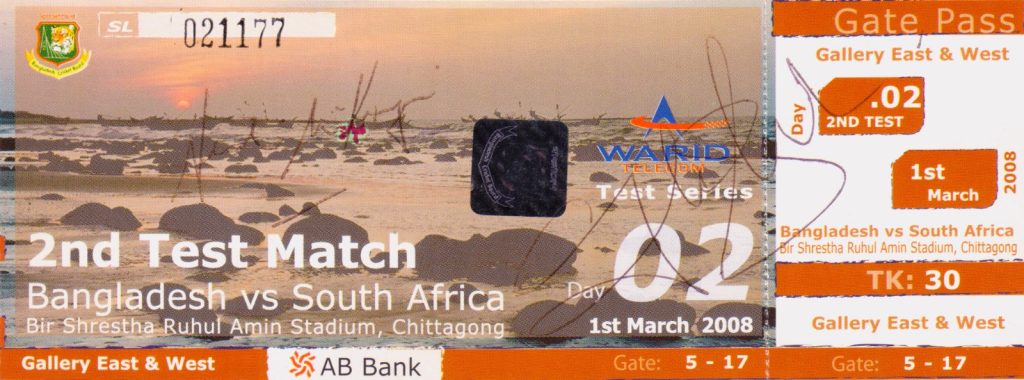
After most players left, McKenzie remained. I praised their record and asked for his autograph. He happily signed. Then I said, “This won’t be complete without Smith’s signature too.” He took me to the team bus, went inside, got Smith to sign it, and handed it back to me. I never imagined something like that would happen.
Times of Bangladesh: Have you had any bad experiences during this journey?
Zunaid Paiker: Before any series, I always make detailed plans 20–30 days in advance—what to get signed, how, and where. I collected most of my autographs in the Sheraton hotel lobby. I would position myself where I could see the players coming and going. I’ve never failed to get an autograph.
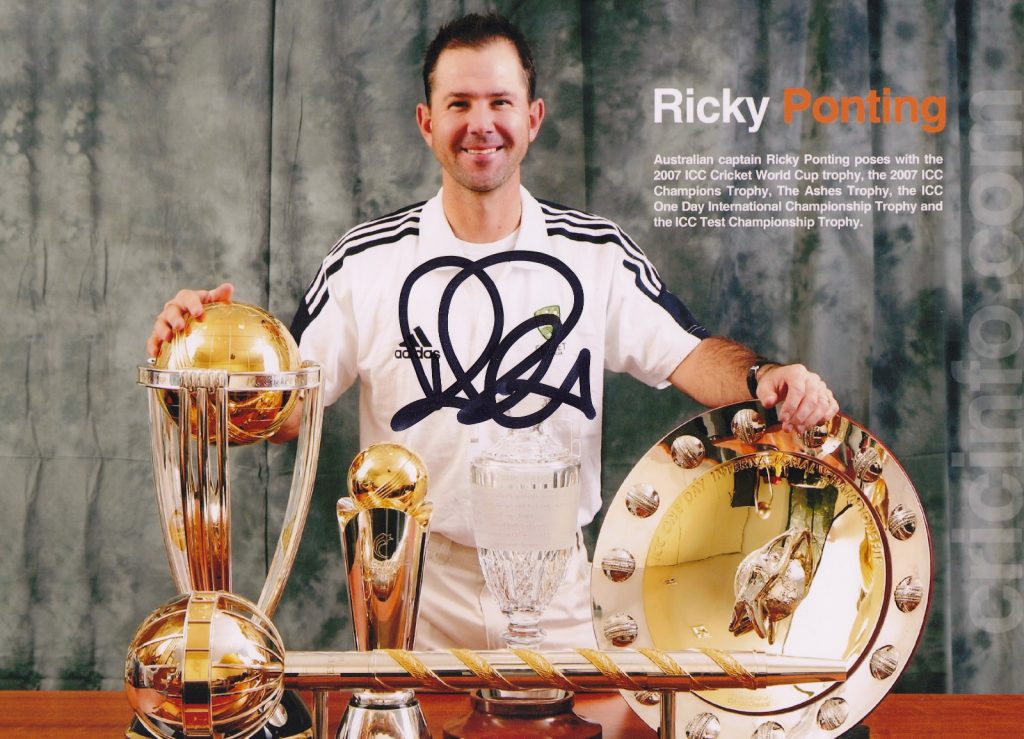
One memory does come to mind, though. In 2005, the Australian team came to Bangladesh. Their players tend to be moody. I saw Michael Clarke walk past me—I wasn’t sure whether to ask. Then Ricky Ponting came down for breakfast. I approached him with a photo, and he liked it and signed it beautifully.
Times of Bangladesh: Do you know others in Bangladesh who collect cricket memorabilia?
Zunaid Paiker: Yes, I know a few. Some senior figures linked to the cricket board, and even a few former players, have great collections—rare jerseys, blazers, and so on. I’ve been fortunate to connect with them. In Bangladesh, the number of collectors is low, mostly because there are fewer opportunities in this field.

Times of Bangladesh: Since you’ve hosted two exhibitions, why do you think Bangladesh doesn’t yet have a large-scale cricket museum?
Zunaid Paiker: I’ve exhibited my collection twice. Cricket board officials came both times, and we discussed the idea of a museum. They expressed interest—but nothing has materialized. Without proper preservation, many valuable items may be lost. For example, Mushfiqur’s bat from his first double century was auctioned and is now in an Indian museum. Shakib’s bat from 2019 World Cup was brought by someone from UK in an auction.. These may never be recovered.
History matters. But in our country, we lack a culture of preserving it. A museum isn’t just about preservation—it’s also about showing respect. The cricket board could easily make it happen. I have a big dream—if God gives me the ability, I’d like to build something like that one day.

Times of Bangladesh: Have you ever collected a player’s match-used bat?
Zunaid Paiker: Not yet. I recently texted Shakib about getting one, and he replied, “Let’s see, Inshallah.” But then everything changed. If things had gone smoothly, I might’ve received it. Still, I do have many signed replica bats.
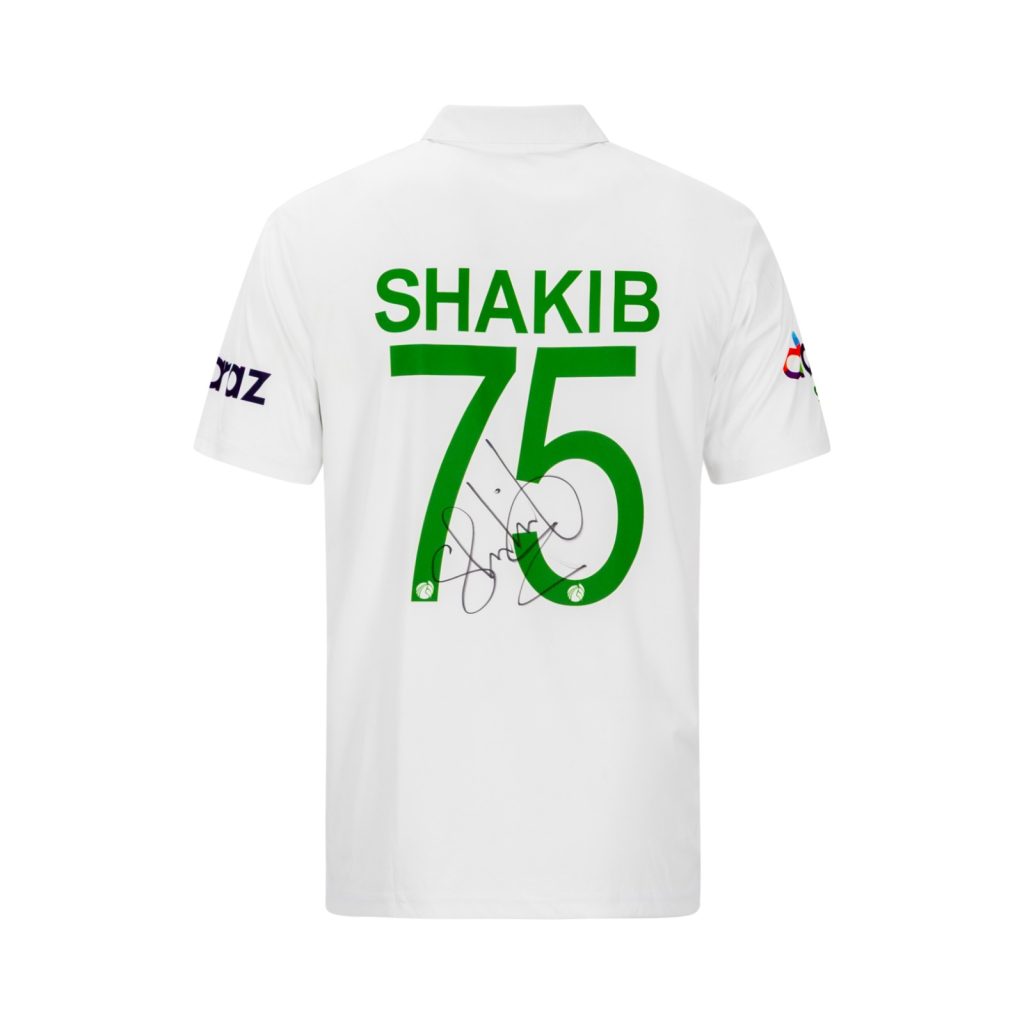
Times of Bangladesh: What message do you have for young people who want to follow in your footsteps and collect cricket memorabilia or autographs?
Zunaid Paiker: If you’re passionate, it’s not difficult. You’ll still see some people standing for hours watching practice sessions and collecting autographs. It’s not impossible. But the culture in Bangladesh has changed. Now everyone’s happy with selfies—no one wants autographs anymore. But an autograph has a different kind of value. When you have an item signed by your favorite player, that’s not the same as a selfie. It’s a beautiful hobby. Once someone discovers the joy of it, they want to keep doing it.
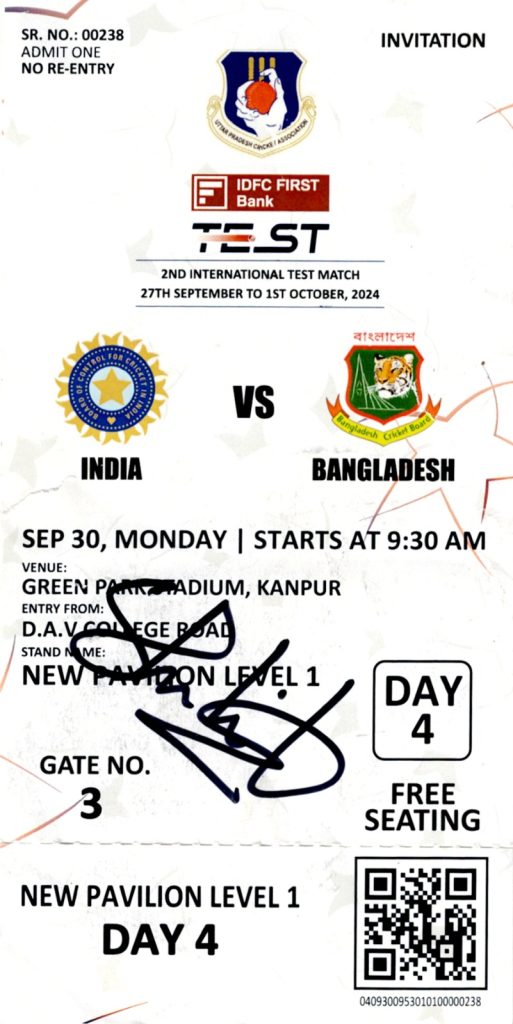
The collecting patterns have also changed. Take stamps or coins—you can now easily get pieces from 100 countries online. But the thrill of chasing a single coin for months—that’s gone. On one hand, the fun has decreased, but the number of collections has grown. The real joy of collecting lies in the wait. If you don’t wait for it, you won’t truly love it.


